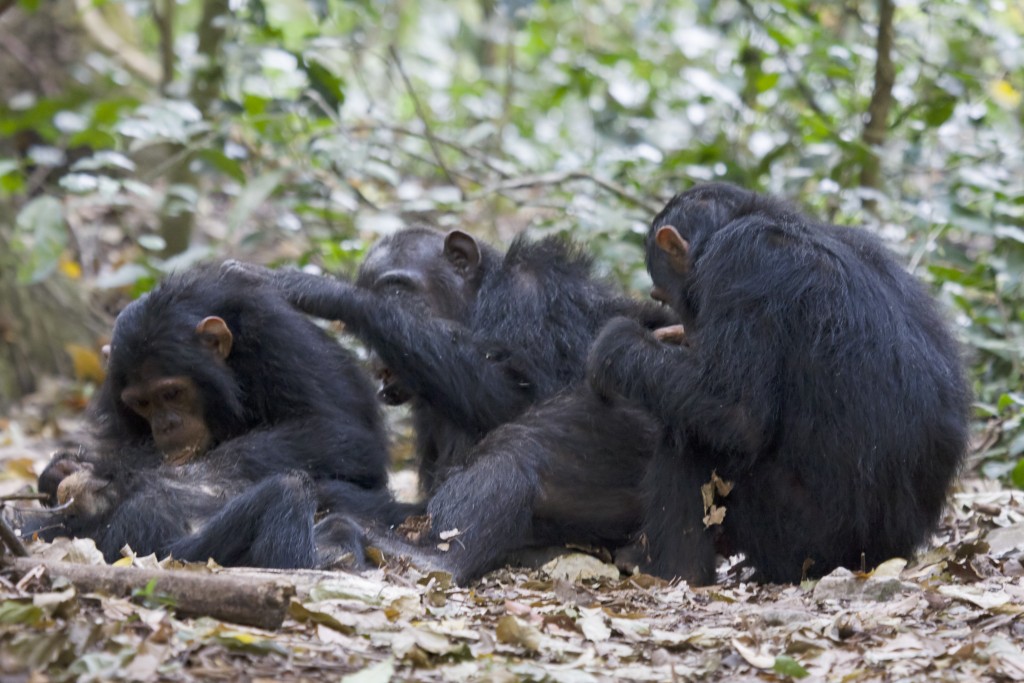Writing in the Atlantic, Barbara J. King explores some of the evidence for spirituality and even religious ritual among some of our closest relatives, chimpanzees.
A study out of the Max Planck Institute for Evolutionary Anthropology published in Nature last month postulated that the rock-throwing activity of some West African chimpanzees may be a ritual act, comparing it to the way in which people build cairns to mark sacred sites.
King, who is a chancellor professor of anthropology at the College of William & Mary, points out in her discussion that the authors of the Nature paper do not themselves use the word “spirituality” in their commentary on the chimpanzees’ behavior. Others have not been so restrained. The evolution from the question of a possible ritual act, reason unknown, to the question whether we now have proof that chimpanzees believe in God was completed by the Mirror and the Daily Mail, both British tabloids.
King dismisses the escalation of explanations of the behavior, saying that
The chasm between apes’ repeated throwing of stones taken from a cache at a tree, and apes’ creating the sacred through repeated action, is immense, and for Stanford, not navigable by science. Apes, as I have noted in my book Evolving God, do engage in certain acts of the imagination, including pulling an imaginary toy on an imaginary string (in captivity), and caring for a log apparently envisioned as a companion (in the wild). I’ve used instances like this, in addition to evidence for things like ape empathy and rule-following, to argue that the very deepest roots of human religiosity can be found in our primate cousins. But that’s a far cry from anointing them with a spiritual sensibility.
However, she was given pause by the arguments of Donovan Schaefer in his book, Religious Affects: Animality, Evolution, and Power.
Donovan rejects the Euro-American tendency to equate religion with belief, text, and language. Religion is something we feel in and express with our whole bodies, Schaefer insists, and once we realize this, we are free to see religion in other animals in certain instances of their embodied and emotional practices. …
Compared to us, other animals, Schaefer told me, “have different life-worlds, different fascinations, different interests emerging out of their complex evolutionary histories. That could be waterfalls, wildfires, storms, or features of the landscapes where they live, work, and play that somehow stick out for them. Their religions will be built out of their fascinations, just as our religions are built out of ours.”
By the end of their conversation, King remained unconvinced that it is appropriate to compare our sense of religion and spirituality with whatever is going on inside the minds (and souls?) of our closest relatives; but if we leave behind as too anthropic the question of whether or not chimpanzees “believe in God,” do you think that it is possible for animals to be “spiritual” and/or “religious”?
Read the original Atlantic article here.
Featured image: Eine Gruppe Schimpanse (Pan troglodytes schweinfurthii) beim gegenseitigen Lausen, Gombe Stream National Park, Tanzania by Ikiwaner via commons.wikimedia.org/GDL

